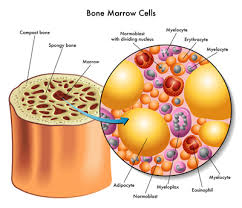Should we treat patients with myeloma with multidrug, multitransplant combinations with the goal of potentially curing a subset of patients, recognizing that the risk of adverse events and effect on quality of life will be substantial?
Hi David- I was diagnosed with stage 1 multiple myeloma with an m-spike of 0.86 in July of 2020. I had started Revlimid (Lenalidomide- 10mg), Velcade (Bortezomib- 4mg), Dexamethasone (40 mg) and the m-spike fell to 0.32.

At that point my oncologist reduced the dosage and stopped the bortezomib injections. Last month my m-spike has risen again to 0.56 .
Now the oncologist has asked me to start Lenalidomide (15mg)+bortezomib (2mg)+ dex 40weekly again.
The effects of the medicines are way more than the actual condition, I had no other symptoms then a little protein showing up in my urine and low grade fever at evening times rarely 2 or 3 days in a month. Sam
Hi Sam-
I am sorry to learn of your stage 1 multiple myeloma diagnosis however good to read that you responded to induction therapy and great to read that your MM is at a low level.
It is difficult for me to respond fully to your question without knowing your situation in its entirety. For example any CRAB symptoms at your original diagnosis? It is possible that you had “pre-myeloma.” That is to say that an m-spike less than 3.0 with no CRAB symptoms and few abnormal markers is not multiple myeloma but MGUS or SMM, not full multiple myeloma.
But I’ll offer several options for you to consider.
The issue you write about- that is the toxicity associated with active therapy (some people talk about “the cure being worse than the disease”) is a common problem. The basic challenge for all pre-MM, stage 1 MM and MM patients who reach remission, is to walk the fine line in between the damage done by your MM and the damage done by chemotherapy.
I can make the argument that your oncologist is overtreating your stage 1 MM. It is an open question if cancer, any cancer, that is not causing damage to the patient should be treated with toxic therapies (chemotherapy) that damages the patient.
On the other hand, your oncologist would say that it is safer to treat stage 1 MM at a low level and not let it grow. Please read the “cure vs. control” article below.
You have several options.
1) Do nothing. Follow all treatment instructions from your oncologist.
2) Reduce the dose of chemotherapy that your oncologist is prescribing- perhaps limit the treatment to only a low dose of Revlimid (lenalidomide) or a low dose of Velcade (bortezomib) not both. Less chemo, less toxicity, feel better.
3) Discontinue all chemotherapy and undergo evidence-based, non-toxic, no-conventional therapies. I will link the MM CC supplementation guide below.Each of the nutritional supplements listed has been shown to kill MM cells (studies linked to each)..
It is important to understand that MM patients can live long lives with a small amount of MM in their marrow. By small amount, I’m talking about an m-spike less than one. The day may come when your m-spike, freelight chains, immunoglobulins, etc. increase enough to start treatment again. But by living a healthy, anti-MM lifestyle you will be better able to handle more chemotherapy down the road.
It is commonly acknowledged that men over the age of 60 have small amounts of cancer in their prostate glands. We older men walk around for years with few if any symptoms.
Please understand Sudarshan, there is a risk either way- of doing nothing (watch and wait) or treating your low level MM. My thinking is that it is always better for the MM patient to decide which risks he/she wants to take.
Let me know if you have any questions. Hang in there,
David Emerson
- MM Survivor
- MM Cancer Coach
- Director PeopleBeatingCancer
Recommended Reading:
“Although not often openly acknowledged, “cure vs control” is the dominant philosophical difference behind many of the strategies, trials, and debates related to the management of myeloma. Should we treat patients with myeloma with multidrug, multitransplant combinations with the goal of potentially curing a subset of patients, recognizing that the risk of adverse events and effect on quality of life will be substantial?
Or should we address myeloma as a chronic incurable condition with the goal of disease control, using the least toxic regimens, emphasizing a balance between efficacy and quality of life, and reserving more aggressive therapy for later?
To be sure, if cure were known to be possible (with a reasonable probability) in myeloma, it would undoubtedly be the preferred therapeutic goal of most patients and physicians. But this is not the case. Myeloma is generally not considered a curable disease; however, new definitions of cure have been suggested, including operational cure, which is defined as a sustained complete response (CR) for a prolonged period.1,2 Cure vs control is debated because the strategies currently being tested are not truly curative but rather are intended to maximize response rates in the hope that they will translate into an operational cure for a subset of patients.
For decades, the treatment of myeloma was restricted to conventional chemotherapy with alkylators and corticosteroids, and the question of cure vs control never arose. The response rate with alkylators and corticosteroids was only about 50%, and CR3,4 was rare. Cure was never a goal of therapy because it was assumed to be unattainable. Instead, the goal was to control the disease as much as possible, providing the best quality of life to the patient for the longest duration by judicious, intermittent use of the 2 available classes of active chemotherapeutic agents.
“A vast range of disorders—from indolent to fast-growing lesions—are labelled as cancer. Therefore, we believe that several changes should be made to the approach to cancer screening and care, such as use of new terminology for indolent and precancerous disorders.
We propose the term indolent lesion of epithelial origin, or IDLE, for those lesions (currently labelled as cancers) and their precursors that are unlikely to cause harm if they are left untreated. Furthermore, precursors of cancer or high-risk disorders should not have the term cancer in them.
The rationale for this change in approach is that indolent lesions with low malignant potential are common, and screening brings indolent lesions and their precursors to clinical attention, which leads to overdiagnosis and, if unrecognised, possible overtreatment.
To minimise that potential, new strategies should be adopted to better define and manage IDLEs. Screening guidelines should be revised to lower the chance of detection of minimal-risk IDLEs and inconsequential cancers with the same energy traditionally used to increase the sensitivity of screening tests.
Changing the terminology for some of the lesions currently referred to as cancer will allow physicians to shift medicolegal notions and perceived risk to reflect the evolving understanding of biology, be more judicious about when a biopsy should be done, and organise studies and registries that offer observation or less invasive approaches for indolent disease. Emphasis on avoidance of harm while assuring benefit will improve screening and treatment of patients and will be equally effective in the prevention of death from cancer…”




